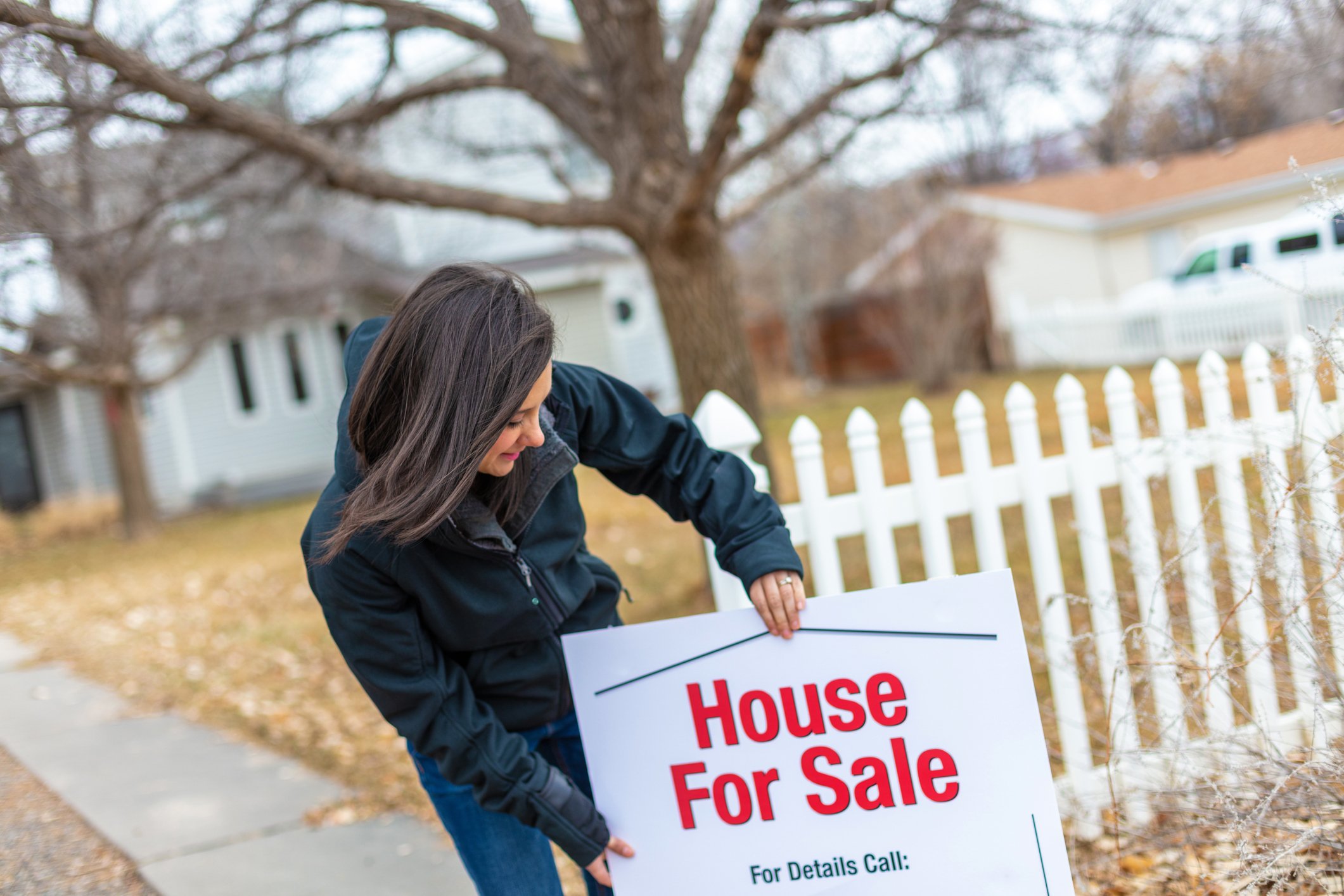Anybody who has bought or sold a house can tell you what a hassle the whole process is. It takes months and months and months. If you're the purchaser, you need to research houses for sale in the city where you will be living. Then you have to visit the houses you're interested in. Then you have to decide on the house that is right for you and your family. Then you have to negotiate a price. Then, unless you have a lot of cash lying around, you have to get a mortgage from a bank. You have to have somebody inspect the house. Contracts have to be drawn up. You need lawyers for that. For many of us, the entire process is a nightmare.
Contrast this with what it's like to buy a stock. The research process is similar -- you may spend weeks trying to find the right company. But once you find the stock you want? The buying process takes minutes. Buying a stock is fast and simple and easy. Buying a house is slow and difficult and painful.

Image Source: Getty Images.
It's not a surprise that venture capitalists see an opportunity here. To that end, they're pouring millions of dollars into startup companies that are trying to upset the status quo. This great talk given by Alex Rampell, a venture capitalist at Andreeseen Horowitz, outlines all the pain points for consumers in the $100 billion real estate industry. It's clearly a space that is primed for disruption.
That disruption is coming in the form of the "iBuyer" model, which streamlines the buying and selling of houses. Opendoor is the top dog and first mover in the iBuyer space. This company will make an offer on your house in a matter of hours if you meet their criteria. The transaction will close within a week. Simple and quick!
Opendoor, still private, has had several rounds of financing from venture capitalists. It has raised $1.3 billion in equity, and more than $3 billion in debt financing for use in buying houses. Co-founder and CEO Eric Wu has a great mission statement for his company: "Our mission is making home buying and selling simple, instant, and hassle-free." This is strong because it shows Opendoor is attacking the pain points that bother consumers the most about buying a house.
The iBuyer phenomenon is still very small. There were 6,000,000 homes bought last year in the United States; Opendoor, the largest of the iBuyers, bought 10,000 of them. That's a tiny business in a giant sprawl of residential real estate. Yet there is no question that Opendoor has upended the status quo. Zillow (Z +0.94%), which was the first company to use the internet to change the way we buy and sell houses, responded quickly to this new iBuyer threat by offering to purchase houses, too.
That marks a bold shift for Zillow, from a real estate media company whose claim to fame was making an estimate on your house to a homebuyer that's now putting its money where its mouth is. Zillow is now spending $1 billion a year buying houses, and management is forecasting that they will buy 60,000 houses a year by 2024. In other words, in five years, 1% of the housing market will be bought by Zillow.
Zillow's move into homebuying seems to validate the iBuyer business model. Traditional realtors are feeling the pressure to make offers for their clients now, too. Gary Keller, the CEO of Keller Williams, announced that his company will be buying houses as well: "I feel like I have no choice now," Keller said. "I can't allow Opendoor or Zillow to go out and be the only player in the iBuyer space and then begin to dictate terms and build brand around 'they buy houses.'"
What makes Zillow such a strong competitor in this space is that they already have a powerful mindshare in the market. Last quarter, Zillow received 70,000 requests from people who wanted an offer on their houses. The company purchased 1,500. What about the other 68,500 people? These are very valuable leads, people who are highly motivated to sell their houses. Zillow can feed these names to its premier agents, who can find buyers for those properties. Real estate tech analyst Mike Delprete estimates this itself is a $1 billion opportunity for Zillow. (Delprete gives a fantastic talk on the iBuyer industry here.)
It may be, of course, that none of the iBuyers will be a great investment. That said, they are clearly upending and causing a lot of strife in the real estate industry. Delprete jokes that both Zillow and Opendoor have the advantage of "sustained unprofitability" -- they can and will invest large amounts of money to make the process of buying a house easier for consumers. They are adding liquidity to the housing market. But it might be many years before they see profits.
Should Fools invest in Zillow now? Or wait for Opendoor to go public? Zillow's quick response and dominant mindshare seem to give it an advantage over its upstart rival. While there are certainly risks here, the potential upside is staggering. Interested Fools may want to invest in Zillow now, and perhaps revisit the fight if and when Opendoor opens its books to the public.






